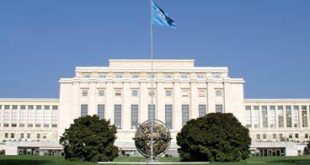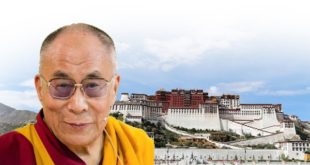A rare insight into the People’s Forum was given by one of it’s key speakers, Ms Deborah Stothard, Coordinator of Southeast Asia-based Altsean Burma – the Alternative Asean Network on Burma, who addressed the Plenary session on “Democratisation and People’s Rights”. In an interview with Penelope Faulkner, Vice-President of the Vietnam Committee on Human on Human Rights, given directly from the Forum in Hanoi, Ms Stothard gave her impressions of the ASEM 5 People’s Forum and her first-time visit to Vietnam. Below is a transcript of the interview, which was broadcast to Vietnam on Radio Free Asia on 10 September (9.00 pm) and 11 September (6.30 am) 2004.
Penelope Faulkner : Deborah Stothard, you spoke at the Plenary Session on “Democratization and People’s Rights” at the ASEM 5 People’s Forum in Hanoi. Could your briefly resume what you said in your speech ?
Deborah Stothard : During the first two days of the Forum, many participants talked about the war on global terrorism and the US presence in Iraq. So I began my speech by saying that all the atrocities connected to the Iraq war reminded us all that it is unacceptable to detain people and subject them to torture – in any country in the world – with the justification that this is to protect the majority. This excuse cannot be used to justify the detention of political prisoners, whether it be in Vietnam or in any other ASEM country.
Also, on the opening night of the Forum, one of the Vietnamese Vice-Prime Ministers spoke at the Opening Dinner and said how much Vietnam valued democracy and was taking one step at a time towards democracy. So in my speech, I noted that it was very inspiring the way the Vietnamese people had transformed their economy in the past 10 years, and I was sure they should have no problem in transforming their political system to make it more democratic.
Apparently, my remarks on this matter caused a bit of a shock and a stir amongst the Vietnamese participants.
I also invited the members of the Plenary Session to stand up and offer a moment of silence to commemorate absent friends, all those who could not attend the Forum because they were in detention or for one reason or another, and also for all those who had lost their lives or their liberty in their struggle to fight for other people’s freedom. So the majority of the people actually had to stand up and honour human rights defenders from this region.
P. Faulkner : Were there any participants who did not stand up ?
D. Stothard : I think there was a very small minority of Vietnamese participants who did not stand up, but most of the Vietnamese and all the foreign participants stood up and paid their respects.
P. Faulkner : What were your general impressions of the ASEM 5 People’s Forum in Hanoi ?
D. Stothard : There was definitely a greater amount of anxiety, less informality and freedom at this particular People’s Forum compared to the previous ASEM People’s Forums in London, Copenhagen, Seoul and Bangkok. Definitely, it was very clear that many people censored themselves because they were pressured not to offend their Vietnamese hosts.
P. Faulkner : All previous ASEM People’s Forums were all held parallel to the official ASEM Summit, whereas the Forum in Hanoi was held in advance. What do you think about that ?
D. Stothard : There has been no clear explanation as to why the ASEM 5 People’s Forum could only be conducted a month before the official ASEM Summit rather than parallel to it. We do not know whether this was because Hanoi does not have the capacity to accommodate two parallel meetings, or whether it was a damage-control or separation tactic by the local [Vietnamese] authorities to prevent inter-reaction between the People’s Forum and the official ASEM meeting. It is very likely that this was a deliberate intention to separate us from our governments.
P. Faulkner : We heard reports that the international media were barred from this Forum. Is that correct ?
D. Stothard : The media were not allowed to attend the Forum or the workshops, and in fact some members of the media had to sign up as participants in order to gain access to the discussions. However, after a certain amount of outrage and international pressure, the media were allowed into the Forum on the last day.
P. Faulkner : The Organizing Committee said there would be daily briefings for the media. Did NGOs speak at these briefings ?
D. Stothard : The Press Briefings were organized at a hotel separately from the main hotel where the Forum was being held. So most of the NGO participants were unaware and not present at these press briefings. They were hosted by the Organizing Committee only, and anyone who spoke at the press briefings did so specifically at the invitation of the Organizing Committee.
P. Faulkner : How many people attended the Forum ? Were there many Vietnamese ?
D. Stothard : I think there were just over 500 people. Unfortunately, the number of Vietnamese participants did not appear to be in such a majority. In the previous Forums in Bangkok, London, Seoul and Copenhagen, the local activists turned out in large numbers. The ASEM 5 People’s Forum in Hanoi was held at the Tay Ho Hotel, a lakeside hotel that is quite a distance from the city centre. There is only one access road to this hotel. So we were feeling a little bit isolated. And definitely, there was a very strict enforcement of the need to wear accreditation tags. People who did not have accreditation tags would not be admitted even into the location of the hotel. So it was not a situation where tourists, local activists or local NGO people from Vietnam could just walk in and sit in on the discussions.
P. Faulkner : What about your contacts with the Vietnamese participants ? Did you feel there were any restrictions on what they were able to say to you ?
D. Stothard : Definitely ! An unusually significant number of Vietnamese participants felt compelled to preface their comments by saying what a good job the Communist Party was doing. In all my experience, I have never seen people so ardently supportive of their governments before.
P. Faulkner : Especially NGOs !
D. Stothard : (laugh) Precisely ! It was a bit of a culture shock because I am so used to seeing NGOs being provocative, challenging government policy and providing alternatives, whereas here, so many Vietnamese participants seemed compelled to protect the status quo.
P. Faulkner : On the last day of the Forum, there were a number of workshops on “democratization and people’s rights”. Do you know if anyone raised specific cases of human rights violations in Vietnam ?
D. Stothard : I am not aware that any specific instances of human rights in Vietnam were raised. That’s partly because there were so many workshops, and I couldn’t be present at all of them. But I know that the situation of the Unified Buddhist Church of Vietnam, for example, was not discussed openly. Some people did make references to human rights in such a way which made it very clear that there were referring to human rights violations in Vietnam.
Also, it was very interesting to hear the Vietnamese “dignitaries” announcing how committed Vietnam was to democratization, and how they were determined to do this democratization “one step at a time” in their own “unique” way. There was a great deal of emphasis on the economic achievements in terms of access to health, education and social services by the Vietnamese government. In fact, one of the speakers ensured us that the Vietnamese media was becoming progressively more free. Unfortunately, we did not have that much access to the Vietnamese media at this Forum, so we couldn’t tell for ourselves !
P. Faulkner : You said you felt that most international participants exercised a degree of self-censorship in their presentations and discussions ?
D. Stothard : There was also outright censorship ! In the plenary session where Burma was brought up, there was a determined effort by one or two Vietnamese participants, who were obviously senior men, to object to the inclusion of Burma in the formal Statement of the Forum.
P. Faulkner : Has this statement been made public yet ?
D. Stothard : No, it has not been finalized, and it does not look likely at this stage that Burma will be incorporated.
P. Faulkner : You are a well-known advocate of human rights and democracy, and you have been fighting for democracy in Asia for many years. Do you have anything to say to the Vietnamese human rights defenders and democracy activists who were absent from this Forum, either because they are in prison, under house arrest or for any other reason, and who are listening to this broadcast today ?
D. Stothard : Many, many activists from Asia and Europe came to Vietnam hoping against hope that we would have an opportunity for greater inter-action and dialogue with more diverse sections of Vietnamese civil society. Evidently, that has not happened in any genuine or significant way. We hope that our Vietnamese friends and colleagues who are listening will understand that we send them our very best wishes and our warmest solidarity. And even though we didn’t get a chance to meet them, this experience has really convinced many of us that Vietnam should be the focus of our efforts to promote human rights.
P. Faulkner : Thank you for this interview from the ASEM Forum in Hanoi. I wish you a safe trip home.
 Quê Me Quê Me: Action for democracy in Vietnam & Vietnam Committee on Human Rights
Quê Me Quê Me: Action for democracy in Vietnam & Vietnam Committee on Human Rights




